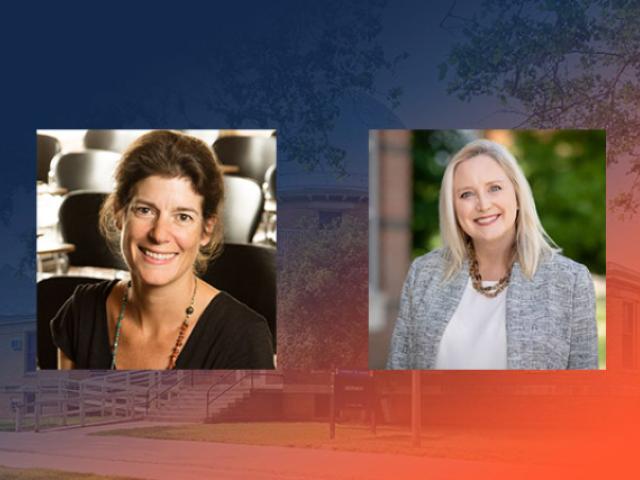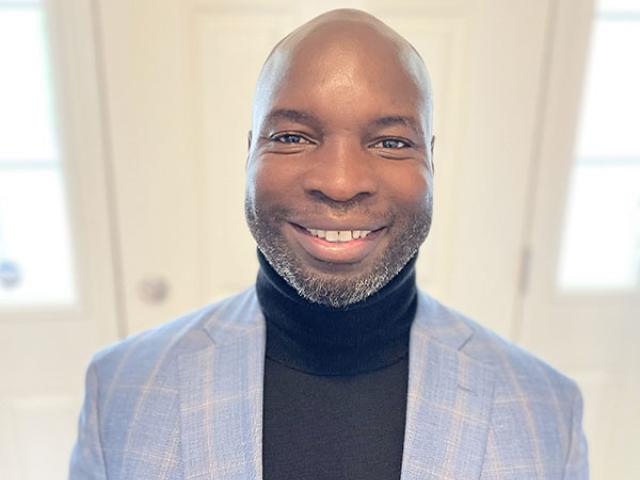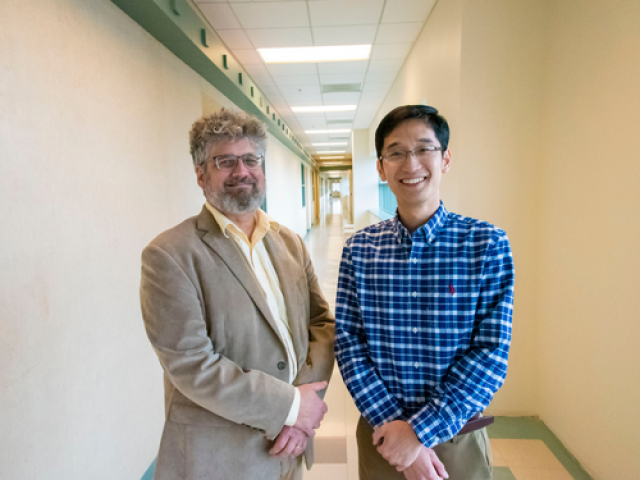This Week in Illinois Research
LabWorks Launch!
Research Park ribbon cuttings are always cause for celebration—and with an 86% occupancy rate, companies continue to put down roots in the park. On Tuesday, we officially welcomed Epivara to its new location in LabWorks, the newly launched wetlab space for growth-stage, life sciences start-ups in the Research Park. Epivara is a wonderful example of Illinois research in action, improving the lives of people and their pets. Founded by Jay Ko, the company has developed a safe, quick, and permanent alternative to spay and neuter surgery for livestock and companion animals.
There’s another important story here, though, and that’s the inspirational tale of LabWorks itself. Entrepreneurs spark our imagination and our economy, but growing a small business can be a big challenge. LabWorks fills an important niche, with programming and support for companies who are ready to take the next step. It also offers a powerful example of how public-private partnerships support continued economic growth in our community. The state made an initial $500K investment in the facility, and the university and its development partners GEM and FDC, as well as the city of Champaign, provided the final push to make it a reality.
April is designated Innovation and Technology Month in the state, but I think it’s always innovation and technology month here in C-U! I’m thrilled that we have developed yet another asset for small businesses who want to grow here in our community.
Sincerely,
Susan
Around Campus
Illinois was recently selected for the Investor Catalyst Hub
Illinois was recently selected for the Investor Catalyst Hub, part of the ARPA-H health innovation network. IHSI will drive Investor Catalyst Hub initiatives on campus.
Learn more about “Addressing Inequity in Community-Engaged Research”
Learn more about “Addressing Inequity in Community-Engaged Research” and develop strategies to incorporate principles of equity-minded practices in your work at an April 19 event led by CSBS and IHSI.
Prenosis announced FDA approval of its AI-powered diagnostic tool for sepsis
Prenosis announced FDA approval of its AI-powered diagnostic tool for sepsis. They also announced an exclusive commercial distribution collaboration with Roche. The company was co-founded by Rashid…
PRI will close its 15th anniversary celebration on April 22 with a talk by Stephen Boppart
PRI will close its 15th anniversary celebration on April 22 with a talk by Stephen Boppart on public health and well-being. RSVP by tomorrow.
MenoPatch, aimed at personalizing hormone replacement therapy
MenoPatch, aimed at personalizing hormone replacement therapy for menopausal symptoms, earned top honors at Founders Forge 2024, the Midwest’s largest student-run startup conference.
Proposals are due May 1 for CCIL’s 2024 Seed Grant Program
Proposals are due May 1 for CCIL’s 2024 Seed Grant Program, focused on launching new cancer research or enhancing existing work by interdisciplinary teams.
National Landscape
The ocean has now broken temperature records every day for more than a year
The ocean has now broken temperature records every day for more than a year, according to climate scientists in the New York Times.
The EPA issued its first-ever national drinking water standard
The EPA issued its first-ever national drinking water standard to protect people from PFAS pollution.
Michael Bragg shared his insights with Business Insider
Michael Bragg shared his insights with Business Insider on the role composite materials may play in future blended-wing body aircraft. The technologies are crucial as aerospace companies look to reduce the cost and environmental…
A new Quick Study podcast episode
The "mutually reinforcing roles of the arts and social sciences" is the focus of a new Quick Study podcast episode featuring National Endowment for the Arts Chair Maria Rosario Jackson and U.S. Census Bureau Director Robert Santos.
The U.S. Department of State has chosen four 2024 U.S. Science Envoys
The U.S. Department of State has chosen four 2024 U.S. Science Envoys to help "inform the government about global opportunities for science and technology cooperation." The four are the first all-female cohort in the history of the program.
The value and risks of international research collaboration
An NSF-commissioned report by JASON notes the value and risks of international research collaboration, while providing "specific steps NSF might take to identify sensitive areas of research and…address security in those areas."


